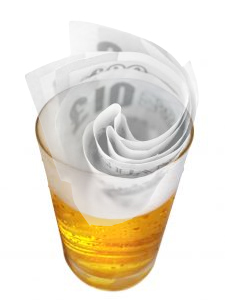 New Canadian research finds crimes, including murders, sexual assaults and drink-driving, dropped 9% over a decade as authorities in British Columbia increased prices by 10%. The conclusions fuel the debate about the need for minimum unit pricing.
New Canadian research finds crimes, including murders, sexual assaults and drink-driving, dropped 9% over a decade as authorities in British Columbia increased prices by 10%. The conclusions fuel the debate about the need for minimum unit pricing.
The research, published in the Journal of Studies on Alcohol and Drugs, shows crimes, including violent assaults, fell by 9.17% when the price of alcohol was increased by 10%. However, motoring offences (e.g. killing or injuring someone with a vehicle and refusing to take a breath test) dropped even more, by 18.8%.
UK newspaper The Guardian links the new findings to the policy of minimum unit pricing, pointing out how David Cameron initially championed this policy but later backed out. The newspaper also points out that previous studies have already shown that minimum unit pricing cuts alcohol-related hospital admissions, saves lives and reduces consumption.
“It appears that minimum pricing is a powerful tool for reducing alcohol-related harm at the individual and societal level,” lead author Professor Tim Stockwell said. Stockwell is an international expert in minimum unit pricing and the director of the Centre for Addictions Research of British Columbia.
The study prompted renewed calls for ministers to introduce the policy. “We hope [it] will encourage the new government to act. With Scotland, Northern Ireland and Wales planning to introduce minimum pricing, Westminster surely must take the same path to protect the health and wellbeing of its citizens,” said Professor Sir Ian Gilmore, chair of the campaign group Alcohol Health Alliance UK.
Further reactions came from Katherine Brown, director of the Institute of Alcohol Studies, who said: “With a million alcohol-related crimes costing the economy £11bn each year, the government can’t afford to ignore evidence for a policy that could reduce crime by 9%.”
In 2012 the then coalition government committed to implementing minimum pricing. Its own consultation concluded that that would lead to 5,240 fewer crimes a year. But ministers did a U-turn in 2013, claiming that there was not enough “concrete evidence” to justify proceeding.
Source: the Guardian 06/28/15

